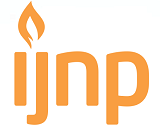The Influence of Self-Efficacy-Based Family Psychoeducation on Family Caregiving Skills for Patients with Paranoid Schizophrenia
DOI:
https://doi.org/10.18196/ijnp.v9i1.21756Keywords:
Family Psycoeducation, Mental illness, Mental disorders, Schizophrenia, Self EfficacyAbstract
Background: Schizophrenia is one of the leading causes of disability worldwide. Among various types of schizophrenia, Paranoid schizophrenia is the most common type, which occurs about 40.8%. This type of prognosis has a better response to treatment, and many patients are still in stable conditions. Patients with paranoid schizophrenia need long-term care and supervision from their significant others, especially family members. In this situation, the role and support of the family becomes important; one of the nonpharmacological management for paranoid schizophrenia involving the family is family psychoeducation. In this research, psychoeducation was corrected and enhanced by presenting self-efficacy as part of family psychoeducation.
Objective: Self-efficacy-based family psychoeducation aims to provide a better understanding of changes in a person’s behavior on long-term treatment of mental illness.
Methods: This study used quantitative and pre-experimental designs with one group pretest and posttest. This study was conducted in the working area of Jenangan Public Health Center. The research period started in October and continued until November 2023. The authors used a purposive sampling technique. Respondents in this study were family members of paranoid schizophrenia patients who were also their caregivers. This family psychoeducation used a guideline module to guide the therapist on how to perform self-efficacy-based family psychoeducation to respondents. The family caregiving skills for patients with paranoid schizophrenia were assessed using five family health tasks questionnaires and statistically tested with the Wilcoxon test. The total number of respondents in this study was 48 respondents.
Results: The results of the statistical analysis showed that the P value was 0.000. This indicated a statistically significant difference, meaning that overall, the Family Psychoeducation intervention based on Self-Efficacy had a positive impact on the family's ability to care for individuals with paranoid schizophrenia.
Conclusion: It can be concluded that self-efficacy-based psychoeducation influences caregiving skills for paranoid schizophrenia. This therapy is highly recommended for patients with mental health conditions. This therapy can be applied in hospital settings and in community family nursing. These findings highlight the importance of incorporating family psychoeducation as a part of the comprehensive treatment plan for patients with schizophrenia.
References
Aremu, T. O., Oluwole, O. E., Adeyinka, K. O., & Schommer, J. C. (2022). Medication Adherence And Compliance: Recipe For Improving Patient Outcomes. Pharmacy (Basel, Switzerland), 10(5), 106. Https://Doi.Org/10.3390/Pharmacy10050106
Avelina, Y., & Angelina, S. (2021). Hubungan Pengetahuan Keluarga Tentang Gangguan Jiwa Dengan Kemampuan Merawat Orang Dengan Gangguan Jiwa Di Wilayah Kerja Puskesmas Bola. Jurnal Keperawatan Dan Kesehatan Masyarakat, 7(2). Https://Jkkmfikesunipa.Nusanipa.Ac.Id/Index.Php/Hlj-Unipa/Article/View/68
Blandina, O. A., & Atanilla, M. O. (2019). Peran Keluarga Terhadap Anggota Keluarga Dengan Gangguan Jiwa Di Kecamatan Tobelo, Halmahera Utara. Jurnal Hibualamo: Seri Ilmu-Ilmu Alam Dan Kesehatan, 3(2), Article 2. Https://Journal.Unhena.Ac.Id/Index.Php/Alamkesehatan/Article/View/68
Caqueo-Urízar, A., Rus-Calafell, M., Urzúa, A., Escudero, J., & Gutiérrez-Maldonado, J. (2015). The Role Of Family Therapy In The Management Of Schizophrenia: Challenges And Solutions. Neuropsychiatric Disease And Treatment, 11, 145–151. Https://Doi.Org/10.2147/Ndt.S51331
Carpendale, E. J., Cullen, A. E., Dickson, H., & Laurens, K. R. (2022). Dissociable Impairments Of Verbal Learning Differentiate Childhood Risk Profiles For Schizophrenia. Schizophrenia Research: Cognition, 28, 100239. Https://Doi.Org/10.1016/J.Scog.2022.100239
Claxton, M., Onwumere, J., & Fornells-Ambrojo, M. (2017). Do Family Interventions Improve Outcomes In Early Psychosis? A Systematic Review And Meta-Analysis. Frontiers In Psychology, 8. Https://Www.Frontiersin.Org/Articles/10.3389/Fpsyg.2017.00371
Ferianto, K., Ahsan, & Rini, I. S. (2016). Analisis Faktor-Faktor Yang Mempengaruhi Self Efficacy Perawat Dalam Melaksanakan Resusitasi Pada Pasien Henti Jantung | Ferianto | Jurnal Kesehatan Mesencephalon. Https://Ejournal.Stikeskepanjen-Pemkabmalang.Ac.Id/Index.Php/Mesencephalon/Article/View/10/11
Harsono, D., Lameky, V. Y., Siauta, M., & Rante, M. (2022). Pengetahuan, Dukungan Keluarga Dan Self Efficacy Pasien Pasca Perawatan Skizofrenia. Global Health Science, 7(2), Article 2. Https://Doi.Org/10.33846/Ghs7211
Heri, M., Dewi, P. K., Widiarta, G. B., & Martini, M. (2020). Peningkatan Self Efficacy Pada Keluarga Dengan Penyakit Tb Paru Melalui Terapi Psikoedukasi. Jurnal Keperawatan Silampari, 3(2), 436–445. Https://Doi.Org/10.31539/Jks.V3i2.1053
Hidayat, R., & Ramli, M. (2019). Shaping A Student Self Efficacy Academic Through Live Modeling Technique (A Synthesis Of Observational Learning In Social Cognitive Theory). Guidena: Jurnal Ilmu Pendidikan, Psikologi, Bimbingan Dan Konseling, 8(1). Https://Doi.Org/10.24127/Gdn.V8i1.1163
Jumain, J., Bakar, A., & Hargono, R. (2020). Self Efficacy Pasien Stroke Di Instalasi Rawat Inap Rumah Sakit Umum Haji Surabaya. Jurnal Penelitian Kesehatan Suara Forikes (Journal Of Health Research Forikes Voice), 11, 74. Https://Doi.Org/10.33846/Sf.V11i0.521
Kementrian Kesehatan. (2019). Info Datin (Pusat Data Dan Informasi Kementrian Kesehatan Ri).
Koerniawan, D., & Frisca, S. (2023). Efikasi Diri Menurunkan Kendala Dalam Berperilaku Sehat. 1(1).
Landra, I. K. G., & Anggelina, K. D. I. (2022). Skizofrenia Paranoid. Ganesha Medicina Journal, 2(1).
Maria, K., Widuri, W., & Islamarida, R. (2022). Peran Keluarga Sebagai Caregiver Pada Pasien Stroke: Studi Literatur. Jurnal Keperawatan Akper Yky Yogyakarta, 14(1), Article 1.
Mcfarlane, W. R. (2016). Family Interventions For Schizophrenia And The Psychoses: A Review. Family Process, 55(3), 460–482. Https://Doi.Org/10.1111/Famp.12235
Mueser, K. T., (2022). Telehealth-Based Psychoeducation For Caregivers: The Family Intervention In Recent-Onset Schizophrenia Treatment Study. Jmir Mental Health, 9(4). Https://Doi.Org/10.2196/32492
Nurhidayah, I. (2023). Self Efficacy Orang Tua Dalam Merawat Anak Kanker: Sebuah Studi Kuantitatif Di Rumah Singgah Kanker Anak. Indonesian Journal For Health Sciences, 7(1), Article 1.
Okpokoro, U., Adams, C. E., & Sampson, S. (2014). Family Intervention (Brief) For Schizophrenia. The Cochrane Database Of Systematic Reviews, 2014(3), Cd009802. Https://Doi.Org/10.1002/14651858.Cd009802.Pub2
Panjaitan, L. N., & Dewi, B. P. (2022). Factors Affecting Return Of Mental Disorder Patients: Literature Study | Jurnal Kesehatan Dan Pembangunan. Https://Stikesmitraadiguna.Ac.Id/E-Jurnal/Index.Php/Jkp/Article/View/128
Pardede, J. A., Harjuliska, H., & Ramadia, A. (2021). Self-Efficacy Dan Peran Keluarga Berhubungan Dengan Frekuensi Kekambuhan Pasien Skizofrenia. Jurnal Ilmu Keperawatan Jiwa, 4(1), Article 1. Https://Doi.Org/10.32584/Jikj.V4i1.846
Pitayanti, A., & Hartono, A. (2020). Sosialisasi Penyakit Skizofrenia Dalam Rangka Mengurangi Stigma Negatif Warga Di Desa Tambakmas Kebonsari—Madiun. Journal Of Community Engagement In Health, 3(2), 300–303. Https://Doi.Org/10.30994/Jceh.V3i2.83
Pratiwi, N., & Yuwono, S. (2014). Pengaruh Vicarious Experience Terhadap Self Efficacy Berwirausaha Pada Siswa Smk Negeri 2 Salatiga. Fakultas Psikologi Universitas Muhammadiyah Surakarta.
Pulungan, Z. S. A., Wardani, I. Y., & Susanti, H. (2022). Pengaruh Family Psychoeducation (Fpe) Terhadap Kecemasan Caregiver Merawat Anggota Keluarga Dengan Gangguan Jiwa Berat. Jurnal Ilmiah Kesehatan Keperawatan, 18(1), Article 1.
Reknoningsih, W., Daulima, N. H. C., & Putri, Y. S. E. (2015). Pengalaman Keluarga Dalam Merawat Pasien Pascapasung. Jurnal Keperawatan Indonesia, 18(3), 171–180. Https://Doi.Org/10.7454/Jki.V18i3.421
Restiana, N. (2019). Kemampuan Keluarga Dalam Merawat Orang Dengan Gangguan Jiwa Di Wilayah Kerja Puskesmas Tamansari Kota Tasikmalaya. Jurnal Medika Cendikia, 6(2), Article 2. Https://Doi.Org/10.33482/Medika.V6i2.110
Rizal, F., & Muttaqin, M. H. (2021). Peran Keluarga Terhadap Penyembuhan Pasien Skizofrenia Paranoid Di Unit Rawat Jalan Badan Layanan Umum Daerah Rumah Sakit Jiwa Aceh. Jurnal Sains Riset, 11(3), Article 3. Https://Doi.Org/10.47647/Jsr.V11i3.789
Rosdiana, R. (2018). Identifikasi Peran Keluarga Penderita Dalam Upaya Penanganan Gangguan Jiwa Skizofrenia. Media Kesehatan Masyarakat Indonesia, 14(2), 174. Https://Doi.Org/10.30597/Mkmi.V14i2.3787
Rosmaharani, S., Noviana, I., & Susilowati, A. (2019). Optimalisasi Pengetahuan Keluarga Dalam Merawat Anak Retardasi Mental Melalui Psikoedukasi Keluarga Di Kabupaten Jombang. Jurnal Keperawatan Bsi, 7(2), Article 2.
Saifah, A., & Febriyanti, D. (2021a). Fungsi Pemeliharaan Kesehatan Keluarga Terhadap Orang Dengan Gangguan Jiwa Di Kecamatan Marawola Kabupaten Sigi. Lentora Nursing Journal, 1(2), Article 2.
Saifah, A., & Febriyanti, D. (2021b). Fungsi Pemeliharaan Kesehatan Keluarga Terhadap Orang Dengan Gangguan Jiwa Di Kecamatan Marawola Kabupaten Sigi. Lentora Nursing Journal, 1(2), Article 2.
Sari, A., & Duman, Z. Ç. (2022). Effects Of The Family Support And Psychoeducation Program Based On The Calgary Family Intervention Model On The Coping, Psychological Distress And Psychological Resilience Levels Of The Family Caregivers Of Chronic Psychiatric Patients. Archives Of Psychiatric Nursing, 41, 1–10. Https://Doi.Org/10.1016/J.Apnu.2022.07.014
Sedjati. (2013). Hubungan Antara Efikasi Diri Dan Dukungan Sosial Dengan Kebermaknaan Hidup Pada Penderita Tuberkulosis Paru Di Balai Pengobatan Penyakit Paru-Paru (Bp4) Yogyakarta. Empathy Jurnal Fakultas Psikologi, 2(1).
Setiawan, L. (2018). Studi Fenomenologi: Pengalaman Keluarga Dalam Merawat Anggota Keluarga Yang Mengalami Gangguan Jiwa. Jurnal Kesehatan Mesencephalon, 4(2), Article 2. Https://Doi.Org/10.36053/Mesencephalon.V4i2.83
Sutarto, S., Fauzi, Y. S., Indriyani, R., Rw, D. W. S., & Wibowo, A. (2019). Efikasi Diri Pada Kepatuhan Minum Obat Anti Tuberkulosis (Oat). Jurnal Kesehatan, 10(3), Article 3. Https://Doi.Org/10.26630/Jk.V10i3.1479
Tessier, A., Roger, K., Gregoire, A., Desnavailles, P., & Misdrahi, D. (2023). Family Psychoeducation To Improve Outcome In Caregivers And Patients With Schizophrenia: A Randomized Clinical Trial. Frontiers In Psychiatry, 14, 1171661. Https://Doi.Org/10.3389/Fpsyt.2023.1171661
The Institute For Health Metrics And Evaluation (Ihme). (2022). Global, Regional, And National Burden Of 12 Mental Disorders In 204 Countries And Territories, 1990–2019: A Systematic Analysis From The Global Burden Of Disease Study 2019. The Lancet Psychiatry.
Thummak, S., Uppor, W., & Wannarit, L.-O. (2023). Patient Compliance: A Concept Analysis. Belitung Nursing Journal, 9(5), 421–427. Https://Doi.Org/10.33546/Bnj.2807
Viana, M., Sari, N. Y., & Dora, M. D. (2023). Hubungan Stigma Dengan Pengambilan Keputusan Keluarga Dalam Melakukan Pengobatan Pasien Gangguan Jiwa. Jurnal Pinang Masak, 2(1), Article 1.
Wahyudi, A. S. (2018). Hubungan Dukungan Keluarga Dengan Efikasi Diri Penderita Tuberculosis Multidrug Resistant (Tb-Mdr) Di Poli Tb-Mdr Rsud Ibnu Sina Gresik. Jurnal Kesehatan, 11(2), 72–85.
Wongpakaran, N., Pooriwarangkakul, P., Suwannachot, N., Mirnics, Z., Kövi, Z., & Wongpakaran, T. (2022). Moderating Role Of Observing The Five Precepts Of Buddhism On Neuroticism, Perceived Stress, And Depressive Symptoms. Plos One, 17(11), E0277351. Https://Doi.Org/10.1371/Journal.Pone.0277351
Yesufu-Udechuku, A., Harrison, B., Mayo-Wilson, E., Young, N., Woodhams, P., Shiers, D., Kuipers, E., & Kendall, T. (2015). Interventions To Improve The Experience Of Caring For People With Severe Mental Illness: Systematic Review And Meta-Analysis. The British Journal Of Psychiatry, 206(4), 268–274. Https://Doi.Org/10.1192/Bjp.Bp.114.147561
Zlatanović, L. (2016). Self-Efficacy And Health Behaviour: Some Implications For Medical Anthropology. Glasnik Antropološkog Društva Srbije, 51(1–2), Article 1–2. Https://Doi.Org/10.5937/Gads51-12156
Downloads
Published
Issue
Section
License
Copyright (c) 2025 IJNP (Indonesian Journal of Nursing Practices)

This work is licensed under a Creative Commons Attribution 4.0 International License.
License
Articles published in the IJNP (Indonesian Journal of Nursing Practices) are licensed under a Attribution 4.0 International (CC BY 4.0) license. You are free to:
- Share — copy and redistribute the material in any medium or format.
- Adapt — remix, transform, and build upon the material for any purpose, even commercially.
This license is acceptable for Free Cultural Works. The licensor cannot revoke these freedoms as long as you follow the license terms. Under the following terms:
Attribution — You must give appropriate credit, provide a link to the license, and indicate if changes were made. You may do so in any reasonable manner, but not in any way that suggests the licensor endorses you or your use.
- No additional restrictions — You may not apply legal terms or technological measures that legally restrict others from doing anything the license permits.
Copyright
Authors who publish with IJNP (Indonesian Journal of Nursing Practices) agree to the following terms:
- Authors retain copyright and grant IJNP (Indonesian Journal of Nursing Practices) the right of first publication with the work simultaneously licensed under an Attribution 4.0 International (CC BY 4.0) that allows others to remix, adapt and build upon the work with an acknowledgment of the work's authorship and of the initial publication in IJNP (Indonesian Journal of Nursing Practices).
- Authors are permitted to copy and redistribute the journal's published version of the work (e.g., post it to an institutional repository or publish it in a book), with an acknowledgment of its initial publication in IJNP (Indonesian Journal of Nursing Practices).














